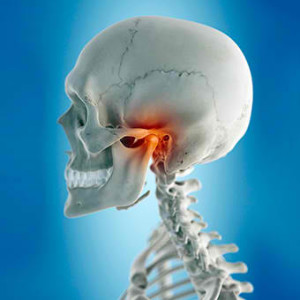Dental problems aren’t something to be ashamed of. They are not meant to be kept. They are intended to be shared and discussed with a dentist. That is why regular dental visits are offered. This is the most effective way to monitor your dental health and resolve what’s meant to be solved. Apparently, it’s not something others would do.
Dental professionals learned that among the leading causes why dental problems complicate and hard to resolve is due to lack of dental visits. Aside from endangering your teeth, these difficulties pose threats to your general health.
For this reason, a lot of dental professionals and dental specialist advocate regular consultations to dentists. Regardless of how mild the problem is, it pays to get a quick visit. Let’s say, TMJ disorder.
According to recent analysis, TMJ is one of the mildest dental problems today. Estimates said that roughly 10 million Americans are affected by Temporomandibular Joint Syndrome, also known as TMJ disorder. TMJ disorder can be easily identified. The most common symptoms are chronic jaw pain, persistent headaches and clicking or popping jaws every time you open your mouth. Extremely irritating as it seems, but some dentists uncovered that TMJ isn’t something to fret. However, severe facial, jaw and mouth pain for weeks are already a different story.
Great news is you can now eradicate the discomfort. With the help of a TMJ dental specialist, you can figure out how to treat the said disorder.
Treatments for Clicks and Pops
Temporomandibular Joint Syndrome is a complicated illness. Although some considered it as a mild condition, physicians believed it could affect and go through elevated range and degrees! From jaw joints and facial muscles, TMJ disorder could affect your facial nerves and surrounding tissues as well. TMJ specialists said that the number one reason of TMJ disorder is stress. Dental experts also considered this as an effect of hormonal fluctuations in women, malocclusions and clenching of your teeth. However, there are no certain causes of TMJ syndrome. Luckily, you can always visit a TMJ specialist once you start hearing popping or clicking sound.
Although TMJ specialists are not recognized by ADA since most dentists, who cover different fields, are good in treating TMJ patients, physicians find TMJ specialists beneficial in different levels.
TMJ specialists know the complexity of TMJ disorder. They can provide you a custom-made treatment plan that is designed to solve and address your TMJ problem. Based on research, there are 50 available treatments for TMJ syndrome. The most common is the over-the-counter pain reliever. Although some say that prescribed pain reliever drugs are much favorable, these pain relievers can reduce chronic jaw pain caused by TMJ syndrome. There are also medications for TMJ prescribed by TMJ specialists. The medicine is advised for unceasing pain to your face, mouth and jaw caused by this syndrome. Most of prescribed drugs for TMJ can relax your muscle, reduce stress and prevent teeth clenching.
Temporomandibular Joint syndrome is also best handled thru physical therapies. These are exercises that can help reduce pain while relaxing your muscles, jaw joints and facial nerves. As an addition, wearing of dental braces and mouth guards can also mitigate TMJ problems. These devices solve the root causes of TMJ syndrome, like malocclusion and teeth grinding or clenching.
TMJ specialists also suggest cortisone injections. These are steroids that can reduce pain and can temporarily bring instant relief for TMJ patients. Another popular option for TMJ syndrome is oral surgery. This is basically recommended for those who have severe TMJ condition which is subjected to jaw bone loss. Therefore, if your TMJ syndrome case can no longer be handled by non-surgical procedures, the best option is oral surgery. Quite simply, oral surgery is the last resort for TMJ sufferers.
Home-Care Treatments
Temporomandibular Joint syndrome can be prevented or solved at home. The most recommended home-care treatment is eating soft foods. Soft foods don’t tax the jaw, unlike chewing gums. Therefore, it’s wise to stick with them to avoid TMJ problems. Furthermore, using ice packs can do trick once you notice jaw pains. It is very effective in relaxing your joints, nerves and jaw and prevents your mild TMJ disorder from progressing.
Jaw clicking and popping are really irritating. Regardless of how chronic the pain is, always remember you can rely to a professional dentist or perhaps, a TMJ specialist.
